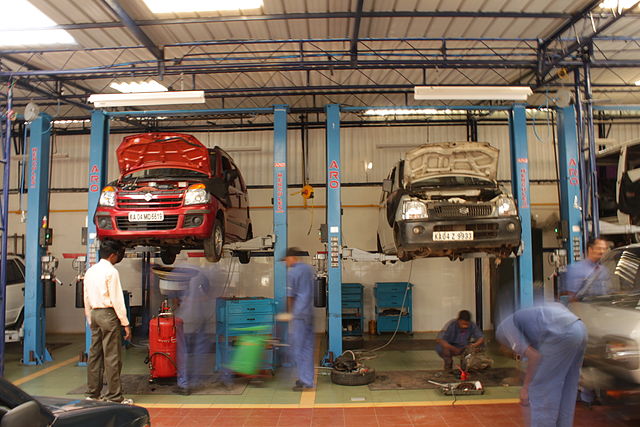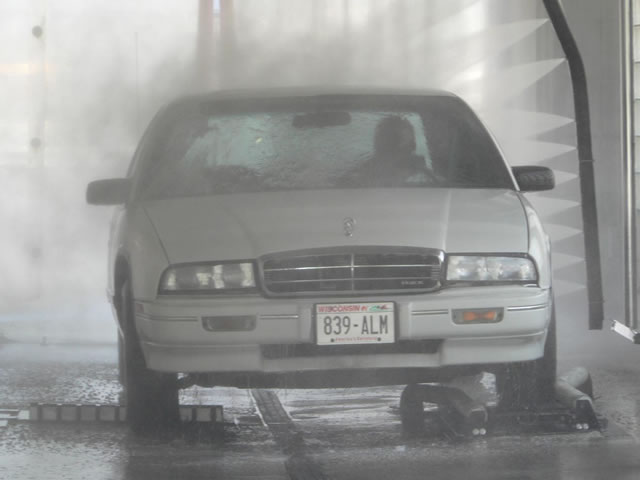From the movie “The Transporter 3,” Jason Statham’s character says, “If you take care of your car, it will take care of you.” How true this is. Only that in Africa, we don’t really know how to take good care of our cars.

Buying a used car is a great idea because it saves you money. You will get the car of your dreams, but at a much lower price than the guy who walks into the showroom and buys brand new. If you know how to take good care of your car, it will continue to look great and no one needs to know that you bought it second hand. If you don’t take care of your second hand car in Africa, the roads will, and you will not be pleased with the result. Your car will wear out so fast, and turn from a ride into a chicken rearing jalopy.
Tune up the car for African roads
Like other Zambians, you have most probably imported your second-hand ride from Japan, and you are the envy of your neighbors, that is, if they don’t hate you for buying it before they could.
However, in Japan, the roads are very smooth, the climate is alternately cold and warm, and possibly, the car you bought hasn’t even hit a pothole. Therefore, if you floor the pedal immediately after getting her cleared through customs, you will be subjecting her to immense abuse, one that she has never suffered before. The first thing you should do is to drive to a repair shop and seek professional advice in regard to a few things that may need changed, like:
The underbody
Many parts of the car are at risk in the underbody. For example, the exhaust pipe, the radiator, the oil pans, the brake lines, and even some low-hanging pumps. You may need to improvise some form of skid plate to protect these parts. You may also have to change or tighten up the suspension a bit.
Under the bonnet
Let the mechanic tighten up the battery, especially if the roads in your neighborhood are rough. Having loose connections in the battery could mean stoppages in the most awkward places—so much for a new car. The mechanic can improvise clamps for the battery. Apart from this, the other parts will most likely be intact.

The wheels
Most wheels will not last long on the roads of Africa, because the steel belts used in the manufacture of the tires only run in the part with the treads. However, considering the condition of the roads, some portion of the sidewall will come into contact with the road. This quickly wears out the tires. To counter this, just over-fill the pressure to about 40 psi instead of 35 psi to help keep the sidewalls of the tires off the ground.
The body
This is the part that everyone notices. In addition to feeling that strong rev of the engine when you are at the wheel, you want those admiring glances to be on your sleek car. Wash the car, but remember to have the underside hosed off, too, because anything that the car runs over can stick to the underbody.
Also, use the best waxing and polishing products on the market. A good waxing should protect the paint, keeping it as good as new. Give her a waxing every six months. Never skimp on the quality of the products that you use on your car. If you park the car under a tree, take care of the bird droppings on the same day that they happen, or they will form a permanent stain.
The roads in Africa can be very dusty, therefore, give your car a cleanup every weekend.
The interior
With time, you may have to change the upholstery with fabrics that can stand the harsh glare of the African sun. For the vinyl and plastic sections of the car, use UV protection products so that they don’t dry and crack up. Also, use a deflector screen on the windshield and the windows and always park your car in the shade.
Other essentials
- So much for the interior and the exterior, here are a few more things you need to keep in the back of your mind regarding your “brand new” second-hand car.
- Differential oils and transmission fluids must be changed regularly, according to the servicing schedule of the car, or even before that. Use the recommended oils and fluids only.
- Every moving part of the car, whether it is in the engine or under the body, must be greased regularly. Joints can go to early retirement, just as people are at risk of arthritis.
- Learn the sounds and the motions of your car. For example, loud squeals, unusual road noises, and some cranking in the engine means things are wrong. Do not wait too long. Have it checked out.
- During servicing, ensure that the wheel bearings are removed, inspected and greased. They will save your spindle and hub, and considering the rough roads of Zambia, it is quite possible to see one of your wheels racing ahead of your car.
If your car looks and drives as good as new, you won’t have to make many trips to the mechanic, thus saving money. You can go for years without facing a big, costly breakdown. Furthermore, you can do some of the aforementioned health checks if you are handy in do it yourself car maintenance drills.













